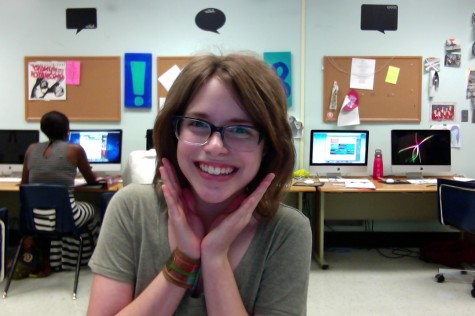Media responsible for helping or harming girl confidence
August 15, 2014
Recent commercials geared toward empowering young women exposes how society discourages girls and shows us how to encourage them instead.
Society throws countless messages at young girls every day, and despite some women’s efforts, most of these messages remain negative and harmful to these young girls’ minds. Because of these often subtle messages, many girls grow up believing they must conform to these ideas, leading many of them to give up on science and math.
“Why aren’t girls opting into computer science? What’s the issue? So much of it is about culture,” Girls Who Code founder, Reshma Saujani explained to Think Progress. “It’s the messages we’ve subtly and unconsciously sent to girls: that computer science and math is not for you. The video shows these little things that we do… that send these messages to these girls that this is not for you: don’t play, don’t get dirty.”
Subtle messages in everyday conversations and comments from family members affect how girls view themselves. In Verizon and Intel’s commercials, the companies directly show the type of language and actions that drive girls away from enjoying science and/or math related subjects.
Comments such as, “Don’t get your dress dirty.” and “Honey, wouldn’t you rather join theater instead of math club?” appear simple on the surface, but telling young girls not to discover new things, not to experiment, not to explore her surroundings, or not to get dirty only push them away from subjects they may love. In order to close the gender gap in science and math ordinated fields, we need to stop telling girls these fields are not for them.
While these commercials may only run for 30 seconds, they leave a lasting impact on young girls and the people around them. After viewing Verizon’s “Inspire Her Mind,” I reevaluated everything I ever believed about women and science. If these commercials cause teenagers and adults to rethink their ideas about women in science, then they will change how young girls view themselves and their passions.







